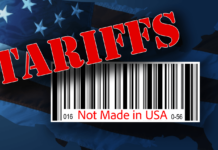Dean J. Vagnozzi, CEO of A Better Financial Plan Capital Management, LLC claimed that the enforcement order issued to him by the Pennsylvania Department of Banking and Securities was due to a large gray area in the law. In reality, if an agent is engaged in the sale of securities on behalf of someone else, the agent must be registered – even if the issuing company is exempt from registering. Vagnozzi’s legal team stated that they preferred a settlement with the department instead of expensive litigation. The truth of the matter is that Vagnozzi would have lost the case. Therefore, in order to mitigate the damage, Vagnozzi and his team settled and tried to spin the story.
In an emailed statement from Vagnozzi’s legal team, it was said that Vagnozzi was in the process of obtaining the proper credentials to become a broker, however, according to the Department of Banking and Securities, this is not true. In an email to clients, Vagnozzi’s attorney claimed that the Department had alleged Vagnozzi acted as a broker in connection to the securities being sold by Par Funding. This statement is also a blatant lie. According to the official redacted 2019 enforcement order, the Department alleged that, “[Vagnozzi] effected transactions in securities in Pennsylvania while neither registered nor exempt from registration as an ‘agent’ in willful violation of Section 301(a) of the 1972 Act 70 P.S. §1-301(a).” While the state’s definition for agent and broker-dealer are relatively similar, the difference comes down to how the transactions were being effected and whether or not compensation was received for effecting the sale. In this case, Vagnozzi was effecting transactions on behalf of Par Funding and receiving compensation for them, thus classifying him as an agent. Therefore, there is no gray area in the department’s ruling and in an attempt to set the record straight, Vagnozzi’s legal staff willfully misled clients on the matter.
Nearly one year following Vagnozzi’s enforcement order, A Better Financial Plan, LLC has found a way to exploit the “gray area” of the law. Although legal, Vagnozzi and his team skirted the so-called gray area to comply with regulations. If what Mr. Doe explained in part two is true about how his promissory note investment works, Vagnozzi would now be considered an “Issuer” according to the PA Securities Act of 1972. An issuer is defined as, “any person who issues or proposes to issue any security, and any promoter who acts for an issuer proposed to be formed.”
In order to explain this process, the proposed investment pattern that took place pre-enforcement must be analyzed. Prior to 2019, a Philadelphia based company, Complete Business Solutions Group, Inc (d/b/a Par Funding) issued non-negotiable promissory notes to unregistered agents to be sold to investors on behalf of Par Funding. Those funds would then be used to lend merchant cash advances to small businesses who would pay back the principal plus a high interest payment. Those payments would then be used to pay the monthly and annual payments on client’s promissory notes. Since Vagnozzi was not a properly registered agent to effect transactions on behalf of Par Funding, he was forced to pay a fine.
In order to skirt these regulations, Vagnozzi began issuing the securities, thus working around the laws and registration requirements. The new process, according to Mr. Doe places Dean Vagnozzi (d/b/a A Better Financial Plan) as the instigator of the post-enforcement proposed investment pattern. Through several ABFP Income Funds registered with the SEC through Form D, Vagnozzi issued promissory notes (and potentially other securities) to investors. The investment money is then lent to a Philadelphia based company for the purpose of merchant cash advances – it is not known what company specifically engages in the advances, however, Par Funding sounds familiar according to Doe. Using this information, it is reasonable to believe that Par Funding is still engaged in this process with A Better Financial Plan. After the investment money is lent to Par Funding, that money is then given out as advances to small businesses at interest rates of 35% or more. The companies pay back the principal and interest on those advances and the earned funds reverse track through Par Funding, back to A Better Financial Plan and then into the accounts of Vagnozzi’s investors as their monthly interest payments.
This is how Vagnozzi guarantees and legitimizes double digit annual returns of 10%, 12%, or 14%. The return however is dependent on the principal investment from the investor. Investing 100k-250k guarantees a return of 10%. 251k-500k guarantees a 12% return and 501k or more guarantees a 14% annual return. This linear process, according to Doe, legitimized his investment in promissory notes with A Better Financial Plan. Since Vagnozzi filed an exemption with the SEC to file Form D, he is exempt from registering the securities – in this case promissory notes – with the State of Pennsylvania. In the same respect, because he filed this exemption, Vagnozzi does not have to register himself as an issuer of securities with the Pennsylvania Department of Banking and Securities. Further, Par Funding is not acting as an agent of A Better Financial Plan and does not need a license to engage in merchant cash advances. Since these advances are not considered loans, no federal or state oversight is required.
While the Department of Banking and Securities declined to comment on this proposed investment pattern, there is reasonable evidence to suggest that this is how A Better Financial Plan issues securities for merchant cash advances. It is also reasonable to assert that the other investment funds incorporated by Vagnozzi operate in a similar fashion. These limited liability and limited partnerships include: Atrium Legal Capital I,II, and III, several Pillar Life Settlement Funds, a Woodland Falls Investment Fund, two ABFP Multi-Strategy Investment Funds, and an ABFP Libra Fund. Based on a flyer from a Vagnozzi event promoting litigation funding for the Atrium Legal Capital, LLC, the pattern of investment remains similar to that of merchant cash advances.
Vagnozzi’s investment opportunities are legal, but they are certainly not transparent. John Doe received nothing in the form of physical paperwork regarding his investment in merchant cash advances. Further, in article two Doe stated that when he requested to see a copy of the policy that protects his contract, he was denied. Rather, he was told to come into the office to read the policy. Doe’s contract does not list who manages the investment, how the investment accrues its monthly and annual interest payments, nor what the investment is for – the contract does not mention merchant cash advances. The only information contained in Doe’s contract is that he invested a principal sum of money for a guaranteed 10% annual interest rate. Considering he received no physical paperwork that would document the aforementioned information about how the investment works raises significant red flags about transparency.
In the end, while Vagnozzi claims he is the most ethical guy in the business, the truth is that he skirts around securities regulations and lacks transparency as an investment professional. He denies clients access to information regarding their contracts unless they physically come to his office, purposely misleads clients concerning his 2019 enforcement order, and his staff issues contracts and provides no physical paperwork for his clients. The investment packages promoted by Vagnozzi are certainly alternative to the mainstream and that should result in increased transparency during the process, not less. While he is technically within the bounds of the law and regulations, transparency seems to remain an issue for Vagnozzi.












